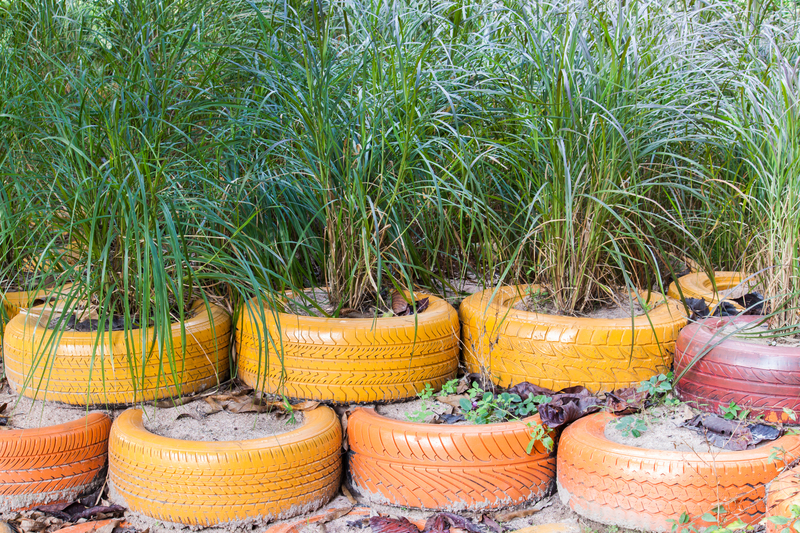Recycling Made Fun for Kids: Tips and Tricks
Recycling is not just an important environmental practice--it can also be a fun and educational activity for children! Instilling recycling habits in kids from an early age not only helps protect our planet, but also empowers the next generation to be responsible citizens. In this comprehensive guide, we'll share creative recycling tips and tricks for kids to make waste management enjoyable at home and in the classroom. Whether you're a parent, teacher, or guardian, these ideas will help you turn recycling into an exciting adventure for every child.
Why Teach Kids About Recycling?
Children are naturally curious and love discovering how things work. Teaching them about recycling early can:
- Boost their environmental awareness
- Promote sustainability for future generations
- Build essential life skills like sorting, organizing, and critical thinking
- Encourage teamwork and social responsibility
- Reduce waste at home and school

How to Get Kids Interested in Recycling
The key to raising environmentally conscious children is to spark their interest! Here are some exciting recycling ideas for kids that are both educational and enjoyable.
1. Make Recycling a Game
Turn recycling for kids into a playful challenge. Create a simple sorting game by collecting clean, empty containers, and labeling bins for paper, plastic, metal, and glass. Encourage children to sort waste into the correct bin. Time them and keep score to see how quickly they can separate items correctly!
- Color-code your bins for faster identification
- Add stickers and fun labels to make the bins visually appealing
2. Creative Recycling Crafts
Kids love crafts! Use leftover packaging, bottles, boxes, and cans for creative art projects. Some popular recycling craft ideas include:
- Transforming a milk carton into a bird feeder
- Making musical instruments from empty containers
- Creating robots from cardboard boxes and bottle caps
- Designing mosaics with old magazines or bottle lids
- Building planters using plastic yogurt pots
These projects not only promote creativity, but also show how recyclable materials can have a second life.
3. Go on a Recycling Scavenger Hunt
Organize a recycling scavenger hunt with a checklist of recyclable items found around your home, yard, or school. Challenge the kids to locate as many items as possible and sort them into their proper bins. This is an excellent way to get children excited about recycling while staying active and observant.
4. Read Books and Watch Videos About Recycling
There are plenty of engaging books and documentaries that explain the recycling process for young learners. Storytime or video sessions help visualize what happens to recyclable waste after it's thrown away and why it matters.
5. Involve Kids in the Whole Recycling Process
Let kids help take recyclables to the curb or local recycling center. Explain how the process works and what happens at a recycling facility. Hands-on experience boosts understanding and reinforces the importance of their efforts.
Top Recycling Tips and Tricks for Kids
To ensure your child's recycling experience is both effective and enjoyable, try these expert tips:
Tip #1: Set Up a Kid-Friendly Recycling Station
Create a dedicated recycling station at home or in the classroom. Place bins at child height and label each with pictures and words for easy identification. This encourages independence and makes sorting waste second nature.
- Use different-sized bins for various materials
- Include a compost bin for kitchen scraps and teach the difference between composting and recycling
- Add a progress chart or reward system to track participation
Tip #2: Use Fun Songs and Chants
Singing catchy recycling songs or chants helps younger kids remember what goes in which bin. Make up your own tunes or search online for popular recycling songs for kids.
Tip #3: Teach the "Three Rs" with Memorable Mnemonics
Strengthen the message of Reduce, Reuse, and Recycle using fun mnemonics or rhymes. For example: "If you can't reduce it, reuse it. If you can't reuse it, recycle it!"
Tip #4: Assign Recycling Roles
Give each child or family member a special "recycling job," such as paper captain, plastic picker, or glass guardian. Rotating these roles keeps everyone involved and fosters a team spirit.
- Turn recycling into a weekly routine
- Celebrate "Recycling Hero of the Week" with simple rewards
Tip #5: Connect Recycling to Everyday Life
Highlight how recycling impacts the world around us. Visit local parks to see how litter affects wildlife, or watch videos about how recycled materials become new items. Relating recycling activities for kids to their daily lives makes it more meaningful.
- Discuss the energy saved by recycling cans and paper
- Show examples of products made from recycled materials
Inspiring Recycling Games and Activities
Make recycling for children interactive with these creative games and activities:
Recycling Relay Race
Set up bins across the yard or classroom. Each child picks up an item and races to put it in the right bin. The fastest team wins! This activity combines physical exercise with important recycling skills.
Recycling Bingo
Create bingo cards featuring common recyclables and see who can fill a row first. This helps children identify recyclable products and encourages keen observation.
Upcycling Competitions
Host a competition to see who can create the coolest new item from old materials. This could be a toy, decoration, or even a functional household item. Offer small prizes for the most creative, useful, or environmentally friendly designs.
The Story of Your Trash
Ask kids to follow the journey of a piece of trash or recyclable item--from their home to the recycling center. Write stories, draw comics, or act it out to reinforce how recycling helps the environment.
Mistakes Kids Often Make When Recycling--and How to Fix Them
Even adults can find recycling confusing, and kids are no exception. Here are some common recycling mistakes and how to address them:
- Throwing food-soiled items in the recycling bin: Teach kids to rinse containers before recycling. Dirty items can spoil whole batches of recyclables.
- Mixing up waste streams: Use clear labels and regular reminders about what each bin is for. Visual aids are especially helpful for younger children.
- Recycling non-recyclables (like plastic bags): Explain what can and cannot be recycled in your community, and why. Some materials need special drop-off locations.
- Forgetting to recycle small items: Show the importance of recycling things like batteries, old electronics, and clothing, but also explain the special procedures needed for them.
Quick Solutions:
- Use posters or printouts showing recyclable and non-recyclable items
- Supervise recycling activities, especially for younger children
- Encourage questions and ongoing learning about recycling do's and don'ts
Benefits of Recycling for Families and Communities
When kids make recycling a habit, the impact goes far beyond the classroom or household.
- Less waste ends up in landfills or the ocean
- Natural resources are conserved for future generations
- Families save money by reusing and repurposing items
- Children feel empowered and proud of helping the earth
- Entire communities become more sustainable

Making Recycling Part of Everyday Life
The ultimate goal is to make recycling second nature for children. Here's how to weave it into daily routines:
- Include kids in shopping decisions--choose products with less packaging or made from recycled materials
- Keep a recycling bin in every room, not just the kitchen
- Turn recycling time into family bonding time
- Volunteer for local community clean-up and recycling events
- Lead by example--show your children your commitment to recycling and the environment
Conclusion: Raising Young Environmental Champions
Recycling made fun for kids is all about creativity, engagement, and positive reinforcement. With these simple tips and tricks, you can help children develop an eco-friendly mindset that lasts a lifetime. Whether at home, in school, or out in the community, every little action counts. Start today and watch as your kids become passionate guardians of our planet!
Encourage, inspire, and celebrate every recycling effort. Because together, we can build a brighter, cleaner future for generations to come!